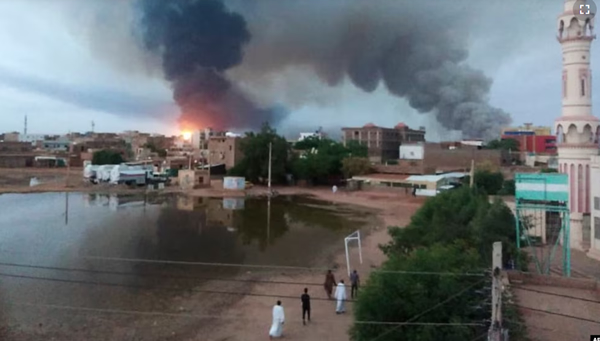
For the fourth day in a row, violent fighting pitted the army against paramilitaries trying to dislodge the military from a strategic base in Khartoum on Wednesday, according to local residents.
General Mohamed Hamdane Daglo’s Rapid Support Forces (RSF) launched an assault on Sunday from several directions on this vast base housing army armoured units in the south of the capital.
On the first day of clashes, both sides suffered “heavy casualties”, residents of various parts of the al-Chajara district, where the base is located, told AFP. Fighting had ceased for only an hour throughout the day. “This is the longest fighting we’ve seen in al-Chajara”, said one of them, reached by telephone from Wad Madani, south-east of Khartoum.
Since then, the army has issued several communiqués and videos assuring that it has repelled the paramilitary attacks, while the RSF has claimed since Wednesday that it has “taken control of almost the entire base, with only small pockets still held” by the army. It is not possible to verify independently what each camp controls.
Since the outbreak of the war between the army led by General Abdel Fattah al-Burhane and the RSF on April 15, both sides have claimed to hold strongholds in Khartoum, although they are still fighting over control of them, such as the army HQ and the presidential palace.
The war has claimed almost 5,000 lives, according to the NGO ACLED. But the real death toll is likely to be much higher, with many areas of the country, mainly in western Darfur, cut off from the rest of the world without telephone or internet access, and many bodies caught in the crossfire inaccessible. Both sides refuse to give details of their losses.
In four months, more than four million people have been forced to leave their homes, according to the UN. Its coordinator for humanitarian affairs, Martin Griffiths, again pleaded on Tuesday for “the parties to stop the fighting and let aid through”.
“Aid routes are blocked and food stocks are dwindling”, he said, while more than one in three Sudanese need humanitarian aid to survive.
Source: africanews.com























